CHALLENGING THE STIGMA
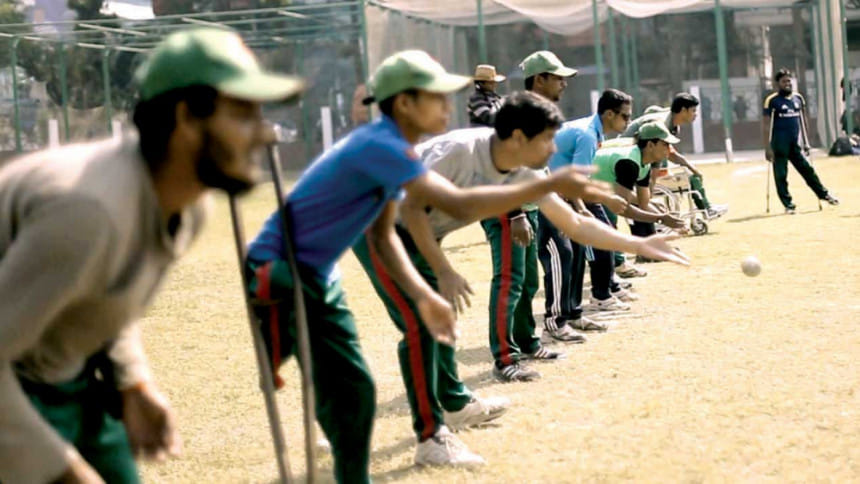
When Mizanur Rahman became enrolled into Jahanginagar University in 2006, he was not sure whether he would be able to continue to meet the costs of his education. Says the founder of Physically-Challenged Development Foundation (PDF): "While I was struggling with trying to meet the costs of my education, I met Barkat from my department. While receiving training in BKSP, Barkat had a severe spinal cord injury and become disabled for the rest of his life. I used to help him in his studies and it was while assisting him that I got a new vision for my life." It was this vision that led Mizan to start an innovative initiative that would change the lives of thousands of people with disabilities.
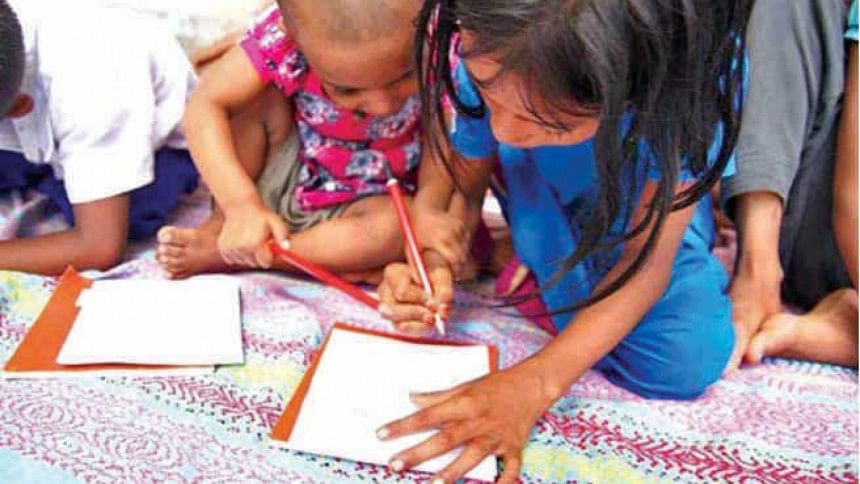
Since its establishment in 2008, PDF a completely youth led voluntary organisation has been working for disabled children and youth through diversified activities. Its campus based activities have ensured a safer and friendlier campus life for thousands of disabled students all over Bangladesh. It has brought to the forefront the issue of the rights of the disabled. It has contributed significantly in increasing quota in different universities and in the job sector for the disabled people.
As a social activist Mizan has brought the change in his own life that he wants to see in the society. Mizan married Suraiya Akter Bably, a visually impaired woman in 2012. Suraiya is the first blind student to get admitted to Jahangirnagar University. Mizan says, "Suraiya has been the inspiration and a great support in all of my activities. And believe me; whether it's about family or the organization, she is more active than me." This amazing couple has a one-year-old healthy young boy.
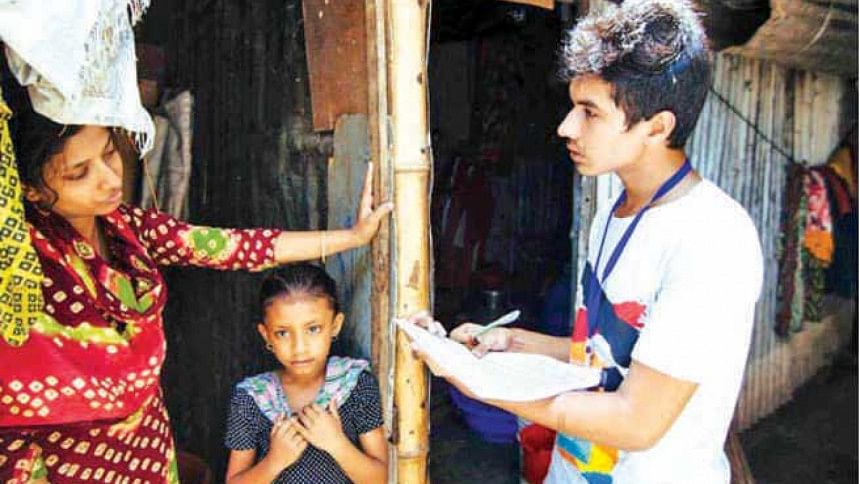
By the time Mizan was a third year student of the university, he was regularly assisting Barkat. His interactions with Barkat made him realise just how unwelcoming the campus was for students with disabilities. To his dismay he found out that there was an unofficial ban on taking in students with disabilities like visual or hearing impairment. In a university programme Mizan addressed this issue. "I explained how an accident could change our lives in a second" he says. "That is why we should be prepared to be disabled anytime and from our self preparedness we could at least show sympathy and a cooperative approach to these people with special needs. I also explained what we, students of university, could do for them."
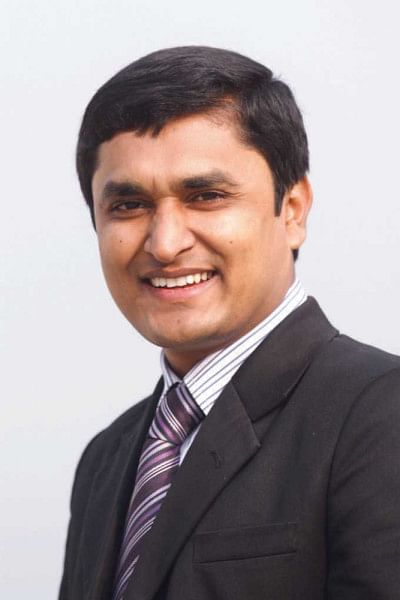
Mizan's speech that day was the first expression of his dream to build an organised effort for the disabled. Dr Valerie Ann Taylor, Mizan's mentor and the chief patron of PDF says, "On that program I first saw Mizan and talked to him. I realised that this young person really feels for the disabled people and he has the enthusiasm and altruism to take the challenge to do something effective. So I encouraged him to form an organization and ensured him of my support." So Mizan and a few of his friends started an organisation called Development of Educational, Scientific and Cultural Organisation for Disabled (DESCOD).
Mizan's initiative began at Jahangirnagar University, one of the most renowned institutions of our country. But at that time it didn't accept any student with disability particularly any student who had visual or hearing impairment. So Mizan and his team of activists, started to lobby for the disability quota in the admission test. But it was not an easy task. Most of the professors completely ignored this appeal and some of them rebuked Mizan for his 'unnecessary' activities. As Mizan says, "It was a very difficult time. Even many of my friends doubted my intention as the number of disabled students was so few that most of them were not at all familiar with the issue."
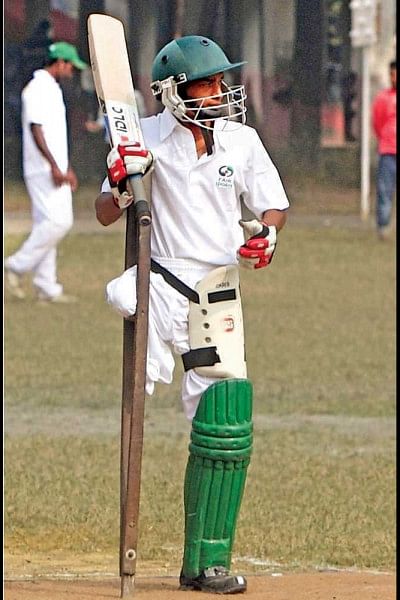
Thanks to the constant support from Professor Dr. A T M Atiqur Rahman, the adviser of PDF, JU chapter, for the first time in the history of Jahangirnagar University, the authority, ensured a quota for blind students in 2010. Ten visually impaired students passed the admission test and only one of them got the chance. Mizan shares his experience, "The process was so complex that these ten students had to come to the campus 17 times for their admission procedure. After so much struggle, when I saw the sad faces of those nine students it broke my heart. So I started this campaign in the universities and now the situation has improved a lot. In my university, now there is quota for all disabled students."
By this time Mizan and his team officially launched the organisation in the university and renamed it as Physically-Challenged Development Foundation in 2009. But it was only the first step in a much bigger hurdle. The biggest challenge of working for the disabled is trying to remove the social stigma against them. Mamun, one of PDF's dedicated activists says, "Most of the disabled students and their families didn't want to share their problem with us. So we started to engage them in our activities."
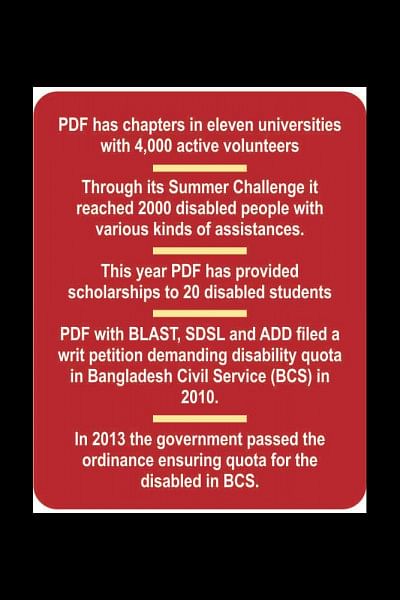
Khokon Chandra Barman, a blind student of Dhaka University's Institute of Education & Research launched PDF's Dhaka University chapter in 2009. Like Khokon many disabled students of different universities joined PDF gradually and started to share their problems and experiences. Taking note of their experiences, PDF started to run a scholarship programme for disabled university students who needed financial help to continue their education. The PDF volunteers also provided various kinds of supports for these students. Muhammad Abdul Khalique, a young leader of PDF says, "The programme called PDF Light House Project is aimed at providing one-stop services for the disabled students of the universities. Under this programme we have offered 20 disabled students with all of their academic costs and we are trying to enhance our supports. Besides scholarship we also provide other forms of assistance such as providing them with a 'reader', 'writer' and guide."
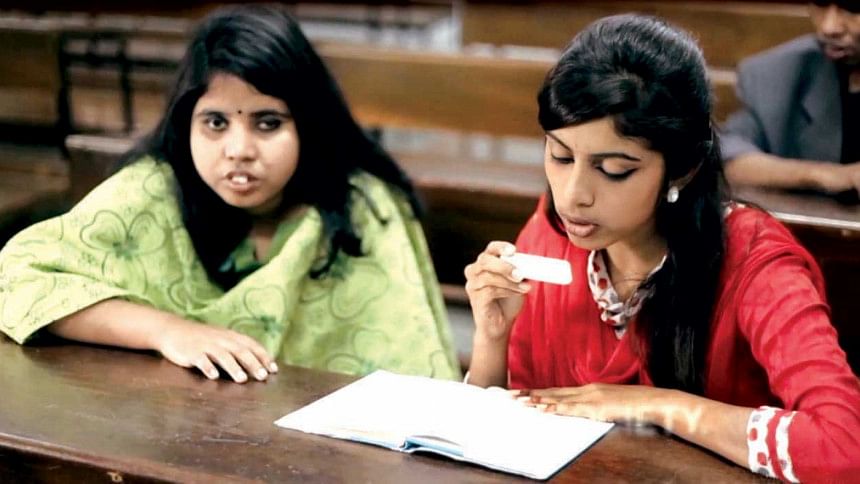
Such support required substantial financial backing and this became another big challenge for the activists of this youth organisation. Many of its resource activists moreover, got engaged in different professions and other money making enterprises. Mizan felt that it was going to nip his dream in the bud. Mizan says, "It was a shattering blow for me. But I was determined to continue to work for this cause. I decided to spread my message in the schools of Dhaka city to make the children and adolescent boys and girls aware of disability rights."
Mizan got an amazing response. Hundreds of school children joined the PDF and initiated ingenious awareness campaigns in their own schools. Now, besides university students, PDF got a new wave of volunteers – school students. With this added strength PDF launched one of its major programmes called PDF Summer Challenge. Asif Mahmood Abbas, a dedicated activist of PDF and a key designer of the programme says, "It's a 35 day long leadership programme designed to engage youth into various social activities. These young people from diversified backgrounds will attend a series of sessions and participate in different outdoor activities and projects on different issues such as health, education, gender rights and of course disability."
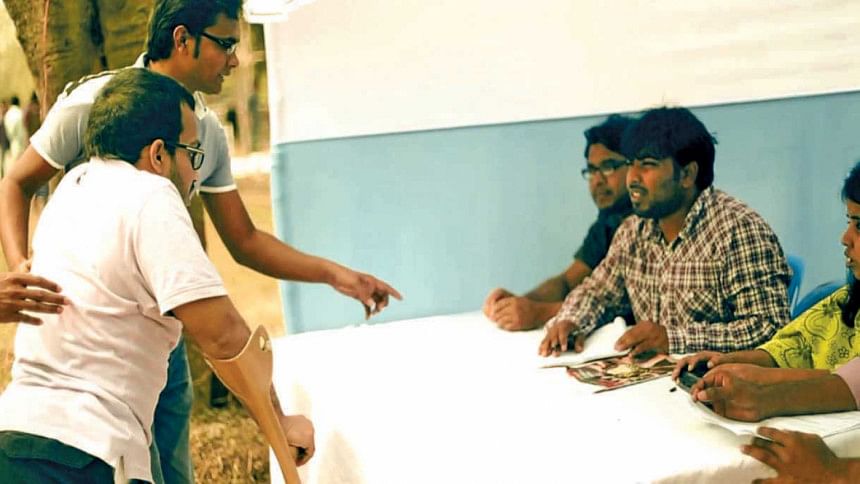
A total of 20 teams, each comprising of ten members participated in the last year's Summer Challenge. Zarrin Tasnim, a first year student of BRAC University says, "last year I was a participant of the 3rd PDF Summer Challenge. I spent 10 days with three autistic kids and helped them to learn different skills. The sessions were also lively and resourceful. I have joined PDF and from my experience I am working to organise this year's 4th PDF Summer Challenge."

Mizan and his team have also been working to make our educational institutions friendlier to the disabled. Mizan says, "From the very beginning of my university life I have observed that most of the renowned educational institutions of our country have little or no facilities for disabled people. In different places we have provided wheel chairs and other assistive devices to the students but those were far from enough. My goal is to establish the first totally disability friendly campus in Bangladesh. But as our chief adviser Barrister Naser Alam suggested, a thorough research on the problems of disabled is necessary to do so." From this vision, PDF convinced BRAC University to conduct a pilot study in its campus on how it can be made a completely disabled friendly institution. After the successful pilot study the university authority has declared that it will design its new building in Savar with the full facility for disabled persons according to the recommendations of the study.
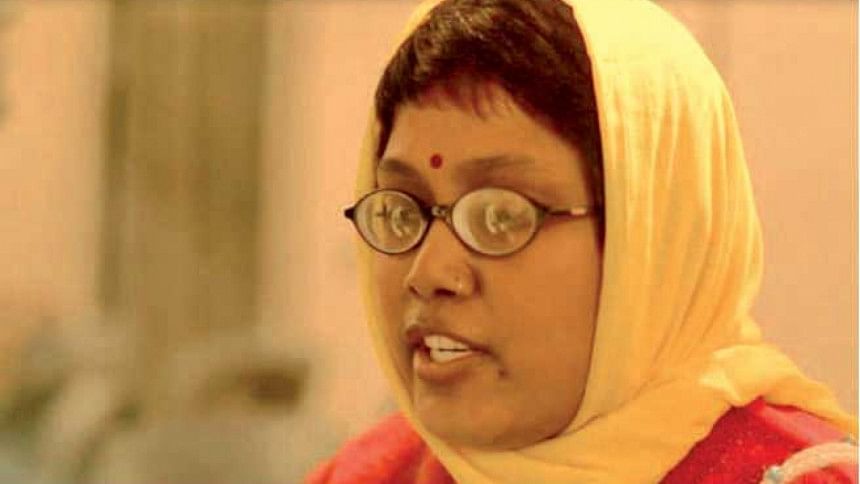
The PDF has also been engaging disabled youth in various kinds of outdoor activities. Mizan says, "One of my goals is to eradicate the social stigma against the persons with special needs. They are capable but the stigma makes them 'disabled'." To change the discourse, PDF first arranged a sports tournament where persons with various kinds of disabilities participated. The event was supported by Bangladesh Garment Manufacturer and Exporter Association (BGMEA). Sharmin Salam one of the advisers of PDF says, "The tournament was a great success. Participants were highly encouraged by such arrangement. Now a national cricket tournament is going to be launched. In these activities disabled people get the chance to prove their capability. Immediate after the first sports tournament, the organisers provided suitable jobs to three participants."
With support from the International Committee of the Red Cross, the volunteers of PDF have been preparing for months to launch the first national cricket tournament for disabled persons called Physically-challenged Premier League (PPL) in March. In fact the cricket tournament will be the first and biggest arrangement of this kind. Eight fully equipped cricket teams will participate in the tournament that has been designed just as the much celebrated Bangladesh Premier League (BPL). But the only difference with BPL is that all the players here are persons with various kinds of special needs and they have overcome their disabilities. They have actually turned their disabilities into a source of inspiration and strength.
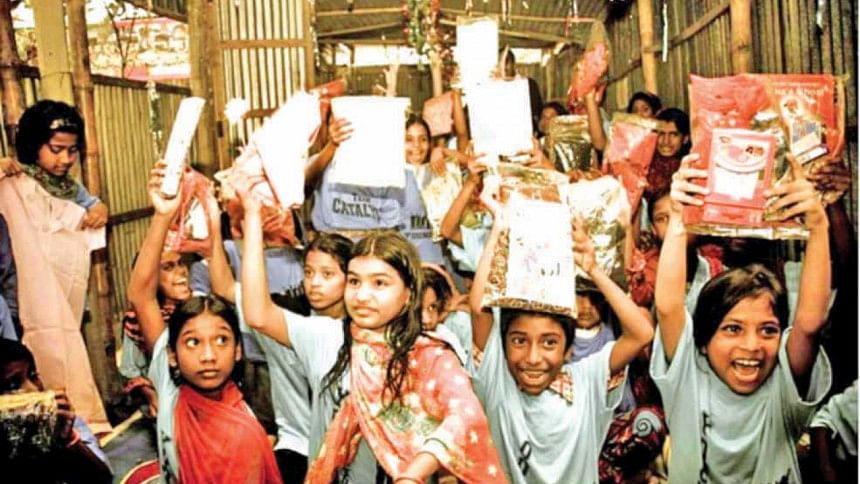
Mizan's initiative has changed the lives of thousands of disabled people like Barkat and Khokon; many of whom had little chance of self sufficiency. His inspirational leadership has motivated thousands of young people to work for this neglected but resourceful part of our population.
Yet Mizan does not think he is successful. "I have actually started a process" he says, "I cannot call my initiative successful until the rights of the persons with special needs are fully recognised in our society. Thanks to my mentor Valerie and all of my well wishers and activists without whose altruistic cooperation I could not start this process. But I can feel that a lot more needs to be done." Mizan's selfless efforts will pay off if we come forward from our own positions and join hands with these youth to protect the rights of the persons with disabilities.

 For all latest news, follow The Daily Star's Google News channel.
For all latest news, follow The Daily Star's Google News channel. 



Comments